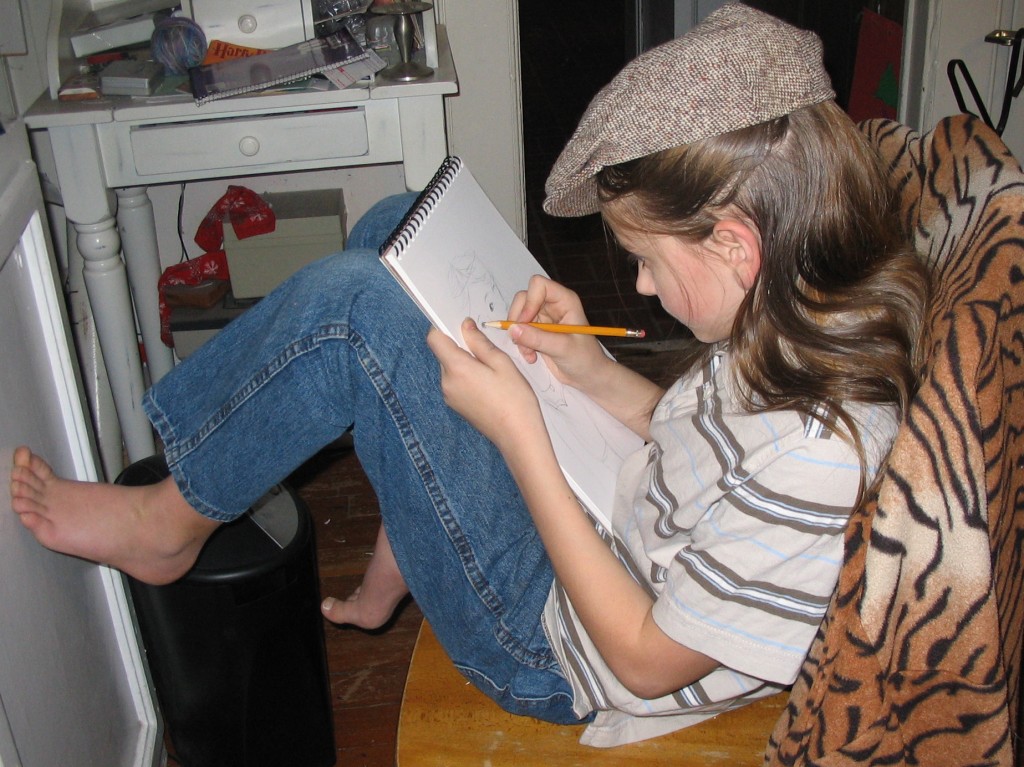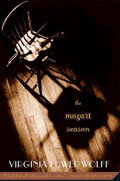…Here are ten things that might help you became a grown up who writes
1. Do stuff.
Everybody says read books and everybody is right about that, but I’m guessing if you are here you already read books. Don’t forget to do other stuff, too. Get outside. Play. Make music. Grow things. Take stuff apart. Build something interesting. Have friends over. Cook something yummy. Get really dirty. Ride your bike as far as you can. Explore a museum. Put on a show. Learn to do magic. Writers are people who have something to write about.
2. Write lots different of stuff.
It takes a while to find the kind of story you can tell best. The only way to know for sure what you are good at is to try a bunch of things. For example, I really like to read science fiction and fantasy, but I have learned that it is not the kind of story that I’m good at writing. (at least not yet)
3. Find a writing friend
Most writers I know have a few writer friends that they share their work with and turn to when they get discouraged and celebrate with when great things happen. Look around at who else in you school loves to write. Start or join a book club. Ask if there is a Newbery Club or teen writing group at your library. I’d be lost without my pals, so keep looking until you find a kindred spirit. If you have no idea where to find another kid who writes, try asking your teacher or librarian.
4. Save your work.
A file box is good. Put stuff you write on the computer on a thumb drive or cd. Email yourself the file. Parents can be a great help with this part of the process.
5. Listen to the news
Part of being inspired is paying attention to what is happening in the world. So pick a news source you like. It could be a newspaper or the radio or magazines. You might like tv news or a news website. A combination of things is probably best. I get my local paper but I also get a national paper because they have different stories in them. I listen to news on the radio pretty often, and I read some news articles on line. Your social studies teacher might have some good suggestions for local, national, and international news.
6. Be smart about sharing work on line.
A good rule of thumb is not to send a story or anything else to someone you have not met in person. Also remember that once you put something up on the internet it is very public and very difficult to take down. Not that you should never post your work, but talk to your parents and decide on some guidelines for sharing your work over the internet. Your librarian might have some good ideas about safe places to share your writing including local writing festivals and contests.
7. Don’t worry too much about finishing every story you start.
If a story just isn’t working or it’s boring to you. It’s okay to move on to something new. Save the abandoned story because you might want to return to it later. Most authors start many more stories than they finish.
8. Find a good spot for your writing.
A tree house works for me. So does a coffee shop and a park bench, but I also have a spot at home to store my work and keep pencils and journals and my computer and my back up files.
9. Thinking matters.
Some writers write tons of words every day–and then think about it and throw more than half of them away. Other writers think for a long time and write a medium amount of words–and then throw a few of them away. Some think everything out ahead of time; others think things up as they go. All of these methods work. Thinking is the most important part.
10. It’s okay to stop writing if you don’t love it.
Writing well is very hard and being published is even harder. The people who hang in there long enough and work hard enough to get published REALLY love to write–even on the bad days. But if you love books and don’t love writing you might think about teaching or librarianship. Editors, copy editors, booksellers, and publishers are all people who get to work with books all day long without writing them.



 For Bunk House Chess you need 4 players and 2 chess sets.
For Bunk House Chess you need 4 players and 2 chess sets.
 1. Malheur County Oregon got its name from French trappers in 1825. Malheur (Mal-yer) means misfortune in French. Do you think Brother is lucky or unlucky to live where he does? Would you want to live in his town?
1. Malheur County Oregon got its name from French trappers in 1825. Malheur (Mal-yer) means misfortune in French. Do you think Brother is lucky or unlucky to live where he does? Would you want to live in his town?